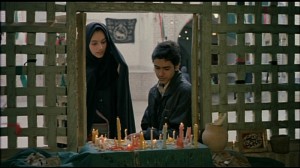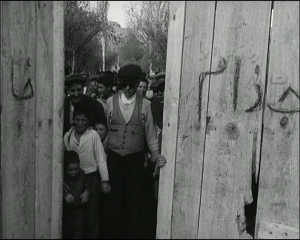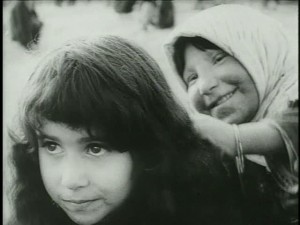From the Chicago Reader (April 4, 1997). — J.R.

This is one of the best features (1996) of the prolific and unpredictable Iranian filmmaker Mohsen Makhmalbaf, a dozen of whose films are showing at the Film Center this month. It’s also one of his most seminal and accessible — a reconstruction of a pivotal incident during his teens. At the time the shah was in power, and Makhmalbaf was a fundamentalist activist. He stabbed a policeman, was shot and arrested, and spent several years in prison. Two decades later, his politics quite different, Makhmalbaf was auditioning people to appear in his film Salaam Cinema, and among them was the policeman, now unemployed. The two of them wound up collaborating on this film, which tries to reconcile their separate versions of what happened with separate cameras. No doubt it was prompted in part by Abbas Kiarostami’s remarkable Close-up (1990), another eclectic documentary that reconstructs past events — a hoax that involved Makhmalbaf himself — with two cameras (showing at the Film Center on April 24). But this is no mere imitation; it’s a fascinating humanist experiment and investigation in its own right, full of warmth and humor as well as mystery. The original Persian title, incidentally, translates as “Bread and Flower.” Read more
From the Chicago Reader (March 7, 1997). Note: The film is now available with English subtitles. — J.R.


The most powerful Iranian film I’ve seen is this 22-minute black-and-white 1962 documentary made by Forugh Farrokhzad (1935-1967), commonly regarded as the greatest 20th-century Persian poet. It’s her only film and its subject is a leper colony in northern Iran. Part of what’s so special about it is its seamless adaptation of the techniques of poetry to the techniques of film, in which framing, editing, sound, and narration all play central roles. At once lyrical and extremely matter-of-fact — without a trace of sentimentality or voyeurism, yet profoundly humanist — Farrokhzad’s view of everyday life in the colony (children at school and at play, people eating, various medical treatments) is spiritual, unflinching, and beautiful in ways that have no apparent Western counterparts; to my eyes and ears, it registers like a prayer. This extremely rare film has never been subtitled, but at a symposium on Farrokhzad’s life and work, Chicago filmmaker Mehrnaz Saeed-Vafa will follow a video screening of The House Is Black with a discussion in English. Preceding this will be the premiere of a video documentary in English that I haven’t seen, Mansooreh Saboori’s I Shall Salute the Sun Once Again, and a discussion with Saboori. Read more



